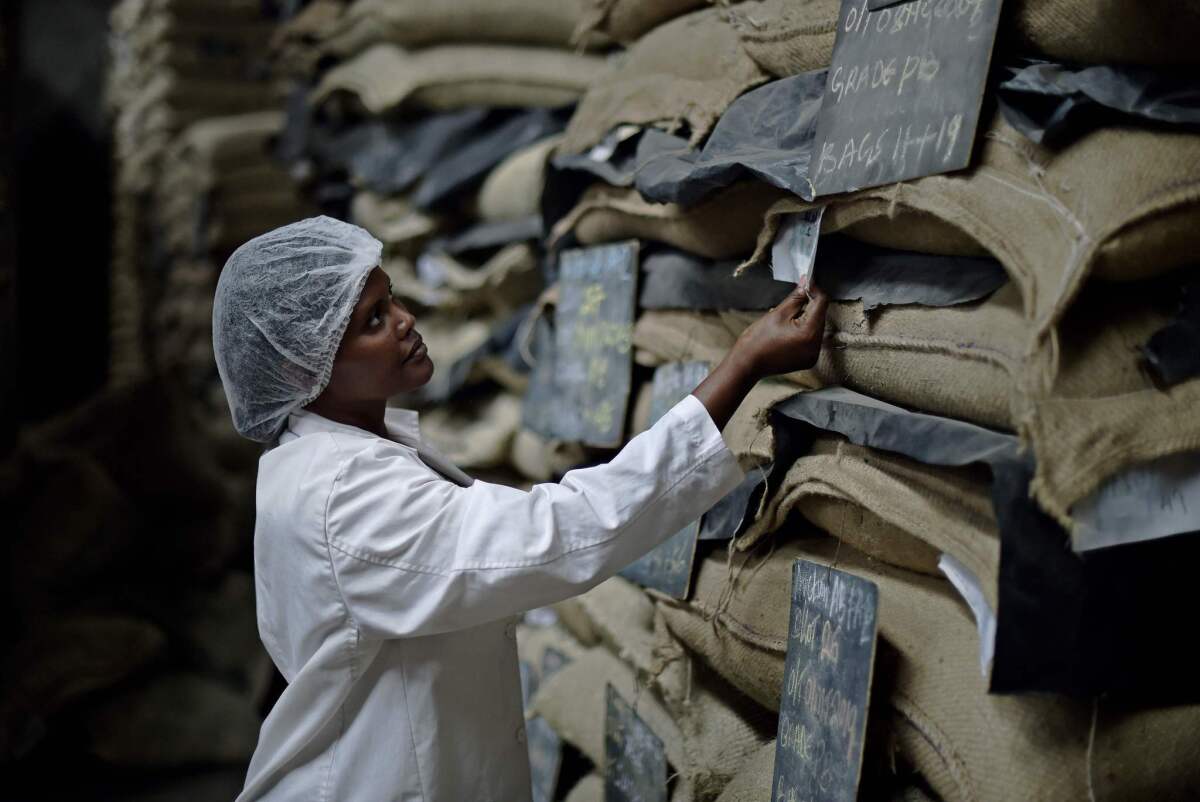America’s top Africa diplomat bullish on the continent despite its woes

Political turmoil, civil unrest and food insecurity are among the myriad challenges burdening Africa, creating a sometimes uninviting environment for foreign investment, political partnerships and travel.
In her role as assistant secretary of State leading the Bureau of African Affairs, Linda Thomas-Greenfield has to navigate a minefield of tough issues. But with more than three decades as a career foreign service officer that has included an ambassadorship to Liberia, and postings in Kenya, Gambia and Nigeria, she remains optimistic about the continent’s future.
“Africa is on the rise. Africa has extraordinary potential,” Thomas-Greenfield during a recent interview with The Times, in which she shared some of her views on U.S.-Africa relations and her vision for the continent.
The interview has been edited for length and clarity.
To what extent is the U.S. playing catch-up when it comes to trade and investment in Africa?
I absolutely disagree that we’re playing catch-up. We have been on the African continent since the beginning. In many countries we were among the first countries to recognize the independence of African countries and American companies were there at the start. I would argue just the opposite, that other countries are playing catch-up and they are playing catch-up at full speed. But we have always been engaged in Africa. We’ve been investing in Africa and we have been committed to Africa.
Why exactly should American businesspeople want to invest in Africa given the many challenges that exist on the continent?
They should invest in Africa because there are missed opportunities. Why do businesses invest? They invest to make money. There are opportunities to make money in Africa. [The continent] has tremendous resources. The greatest resource is the people, but they also have natural resources that companies should be interested in investing in and producing.
How important is the continent’s powerhouse, Nigeria, to the United States and how do you define the partnership between the two countries?
We have a very close and deliberate partnership with Nigeria. Why? Nigeria is the largest country on the continent, the largest population, they have the largest economy on the continent and Nigeria is a leader. We want to partner and engage with Nigeria, not just to work with them on issues that are important to Nigeria, but to work with them on issues that are important to the region. Nigeria is an example to the rest of the continent. The recent election said everything to Africa and the world that Nigeria was ready to play at the top of its game.
How specifically is the U.S. helping Nigeria in terms of combating terrorism and extremism?
We are working very closely with them on this issue. We have directly provided training to battalions of their soldiers to help them in preparing to fight [the Islamist militant group] Boko Haram. We have been providing information sharing ... on intel related to Boko Haram. We have provided equipment and capacity building. We are also working in the humanitarian sector to ensure that people who are in need are getting the necessities for maintaining a standard of living.
To what extent does the U.S. link its assistance to Nigeria to the government’s human rights record?
Human rights are for us a core value. It plays in everything we do on the continent of Africa. So we have worked very closely with the government to ensure that they are aware of our concerns about allegations of human rights violations by their military and by other members of their government. We will not train any military units that have allegations of human rights violations connected to them. And we look very closely at the equipment that we are providing to ensure that it cannot be used in a way that will harm communities.
A year ago the Nigerian government had requested Cobras [attack helicopters] and we decided that we would not provide them. So we are conscious about human rights. But we also know that we have to work with the Nigerians because they are dealing with a devastating terrorist organization.
Corruption permeates every level of Nigerian society. How is the U.S. holding Nigeria’s feet to the fire when it comes to tackling corruption?
President [Muhammadu] Buhari [of Nigeria], when he was elected last year, announced that he had three major priorities at the start. One was to address the issues of the economy, the second was to address the issue of terrorism, and the third was to deal with corruption. And he has been very aggressive in his approach to corruption, and we have been equally aggressive in stating that we will not accept, or in any way allow for, corrupt officials to get support from the U.S. government. So for us, corruption is at the top of our agenda.
But I will say that corruption is not synonymous with Africa. Corruption exists in other countries in the world and it has the same devastating impact.

How big a priority is the resettlement of African refugees for the Obama administration?
We have a very generous program to bring African refugees to the United States. And many of those refugees within the second generation are in the middle class. They do quite well in the United States. So it’s been extraordinarily sad for me to hear all the negative press we’re hearing about refugees. The program is well-organized. Refugees are vetted thoroughly. And refugees, when they come to the United States, contribute to our society and we need to continue to recognize that part of our refugee program, whether it’s African refugees or refugees from other parts of the world.
What’s your long-term prognosis for Africa?
I am an eternal optimist. You see all the signs. And the biggest sign in Africa are their young people, who are extraordinarily ambitious. They are engaged and they want to see their continent improve.
We have a program in the U.S. government, the Young African Leaders Initiative … where a thousand young Africans come to the United States and spend five weeks of intense leadership training. And every time I meet those young people my optimism rises for Africa.
ALSO
5.2 quake near Borrego Springs gives the Southland a jolt
Still waiting for a monster El Niño storm? Forget it
Will California stop police from taking people’s property without a criminal conviction?
ann.simmons@latimes.com
More to Read
Start your day right
Sign up for Essential California for news, features and recommendations from the L.A. Times and beyond in your inbox six days a week.
You may occasionally receive promotional content from the Los Angeles Times.







